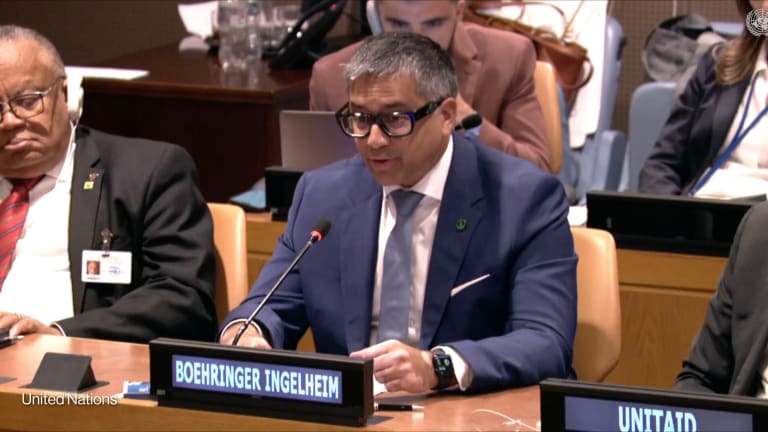Metabolic dysfunction-associated steatotic liver disease, or MASLD, is one of the most prevalent noncommunicable diseases, or NCDs, affecting an estimated 1 in 3 adults and presenting as the most common cause of liver disease in children. It is also among the least known NCDs, with the potential to go undiagnosed, and can progress to its more severe form, metabolic dysfunction-associated steatohepatitis, or MASH.
However, that could be fixed if policies focused on better-integrated prevention, treatment, and care of NCDs, said experts at a global metabolic health roundtable co-hosted by Devex, the ISGlobal Public Health Liver Group, and the Healthy Livers, Healthy Lives coalition on the sidelines of the United Nations General Assembly in New York this week.
“This means elevating liver health conversations and care, building consensus on screening and care pathways across countries, and ensuring that health systems, everywhere — not only the ones in high resource settings — are educated and equipped to detect and manage this disease early,” Grace Su, president of the American Association for the Study of Liver Diseases, told the room.








